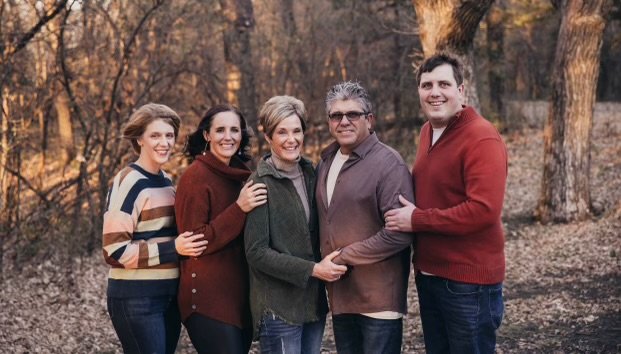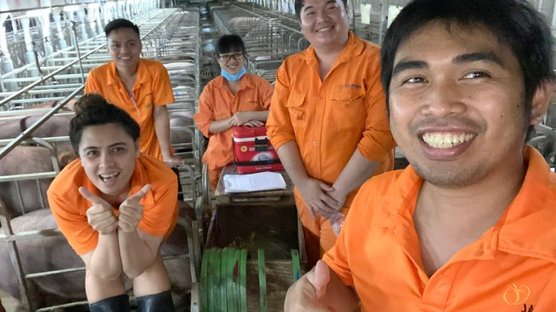
Published on June 6, 2024
"Greatest decision I ever made": A Hypor Customer Success Story
We were so happy to speak with Kyle Steuber from Signature Swine, a family-owned farm located in Fairmont, Minnesota all about their operations and remarkable results in health and productivity.
How did you get into pig farming?
I grew up on my family farm, so it's been my way of life ever since I can remember. From the age of three or four, I knew I was going to be a grain farmer and raise pigs.
Can you tell us more about your operations?
We have 5,000 sows total, in two different facilities. We raise and sell isowean piglets and we also retain a small portion of those isoweans and raise until market. The farm started as a 500 sow unit, but our family has steadily grown the business over time. We have 11 total employees, plus family members are involved in running the operations.
What are your biggest ongoing challenges?
The market is a challenge for isowean pigs in that it has its ups and downs. We need to keep pushing pork demand in order to maintain consistency in the market.
The Hypor Libra sow is so good that she has taken my issues away as far as health and mortality in the sow unit. I used to go to sleep at night and worry about that, but I don't anymore.
What advice can you give to other farmers who are going through similar challenges?
Be open and talk to people to reassure them that pork is a great product, both to raise and for consumption. Farmers are quiet people, and we need to talk to people who haven't seen animals, who don't eat meat to reassure them that we take care of our animals. The Libra sow doesn't die, the piglets are hearty, and this makes it an easy story to tell consumers.
How do Hypor pigs add value in your operations?
Robustness is by far the biggest thing. The piglets are also so robust. The easiest way for me to explain this to another farmer is that no matter what happens, you get the same animal. In past experiences we used to joke that if we heard a sneeze, then we'd be in trouble. Now with the robustness of this animal, if you do your procedures correctly, the animal will succeed. This adds value because it maximizes the end product.
Looking at the numbers, sow death loss in my previous herd was in excess of 10-11%. We're now down to 3.5%-4%, but we have not changed our practices. So to me, this is solely attributed to the quality of the sow. The number of pigs weaned also went up because of her efficiency. With our previous genetics, we were at 11.7 and now we have achieved 12.2 wean average per sow. Half a pig doesn't sound like a lot but when you add it up in a total year it can be more than thousands of pigs from 5,000 sows.
Have you seen the positive impact on labor thanks to her robustness?
This has made a huge impact on our labor force. As an example, in terms of time and energy, typically it takes an extra 45 minutes per day to move out a dead sow. So, if you have one dead sow in a month versus five in a week, that really adds up in time savings of labor alone. The Libra has also allowed us to take a risk on less qualified labor, allowing them to grow within the system and learn without causing major financial loss. With a more difficult sow, we can't risk somebody learning on the fly because it costs too much. Now we can. With the Libra sow, you can recover, and she can recover, so it's great to allow inexperienced labor to grow.
How else would you describe the Hypor Libra?
I see her as being stubborn, which some people take as a negative term, but not to me. She really stays true to her genetics, no matter what. So then she becomes successful because she will do what she's been bred to do, which is prove her durability and resilience in raising healthy piglets.
Can you give your biggest tips or tricks to keep your pigs healthy and performing?
Overall, biosecurity is one that is going to be the biggest tip. Everyone can take biosecurity differently, but I would say feed mitigants can help, be careful of your entry points, and make sure you're disinfecting. I would also add that it's key to have an excellent line of communication with your technical service people. One thing about working with Hypor is that I really feel that they are looking out for me and my business, not just their own bottom line.
Anything else you would like to add?
When other farmers heard that we had made a switch in genetics, they asked, "how are things going?" And I replied, "Greatest decision I ever made." Not just in terms of genetics, but the people we work with have also made the switch so beneficial.



